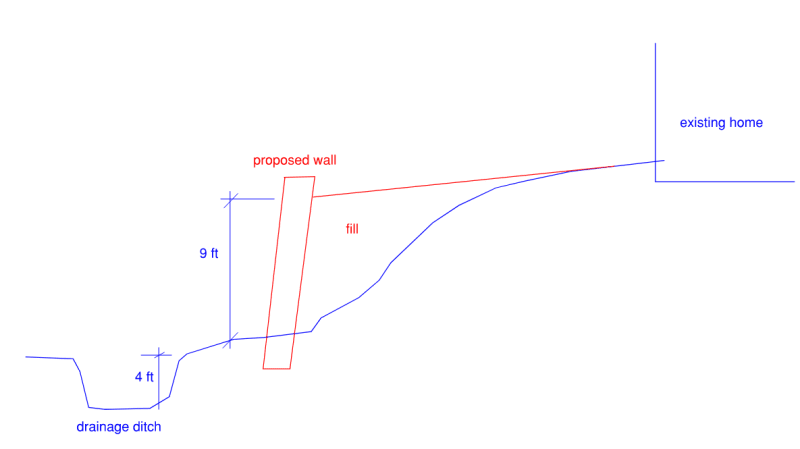TRAK.Structural
Structural
Posted this in the Structural forum, re-posting here for the Geotechnical take.
I've done a fair amount of retaining wall design in my career but hardly any in the residential sector. I am considering doing a project that will require a segmental retaining wall that will have about 9 feet of unbalanced soil. The system will be the typical dry-stacked blocks with geo-grid back into the soil. Looking for any guidance on the points below:
- Geotech investigation isn't likely an option here, if using a low presumptive bearing pressure how does this get confirmed during construction? Are legit special inspections/geo confirmation during construction realistic for residential SRW work?
- Does anyone have any general notes (for a structural note sheet) related to SRW's that they are willing to share?
- I have the NCMA SRW software but haven't found much useful training info on it; anyone know of a good training resource for this or know of any pitfalls to using this program?
- Any trusted resources out there for typical soil properties based on region (Charlotte NC area)?
I've done a fair amount of retaining wall design in my career but hardly any in the residential sector. I am considering doing a project that will require a segmental retaining wall that will have about 9 feet of unbalanced soil. The system will be the typical dry-stacked blocks with geo-grid back into the soil. Looking for any guidance on the points below:
- Geotech investigation isn't likely an option here, if using a low presumptive bearing pressure how does this get confirmed during construction? Are legit special inspections/geo confirmation during construction realistic for residential SRW work?
- Does anyone have any general notes (for a structural note sheet) related to SRW's that they are willing to share?
- I have the NCMA SRW software but haven't found much useful training info on it; anyone know of a good training resource for this or know of any pitfalls to using this program?
- Any trusted resources out there for typical soil properties based on region (Charlotte NC area)?

